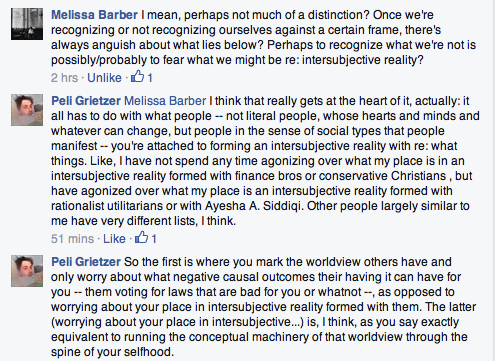This nasty ’Portrait of the Alt-Bro’ article is the first hot shot fired in a decade of cold war between the Lit-Bros and the Alt-Bros, I say:
Lit-Bros — like, the people that go into Ivy colleges and maybe into PhDs or media jobs and write soft new historicist analyses of HBO shows for a magazine, and grew on Nabokov and Pynchon and Delillo and talk about Knausgaard and Tao Lin and analyze the politics of the Billboard 200 and one day a serious press will buy their novel — hate that Alt-Bros act like they’re more highbrow than them despite only going through a liberal arts college education and maybe a rando MA. Now, the Alt-Bros think that they’re more highbrow than the Lit-Bros cause they’re way more into stuff like Stein and Lautréamont and Brakhage and Jarry and Joyce and Satie and Marquis de Sade and Boredoms and Anthony Braxton and Rosalind Krauss and Sarah Kane than Lit-Bros are. And Alt-Bros think they apperceive culture and art and politics at a more abstract and a more embodied level than that of the Lit-Bros. (They are right.)
But Lit-Bros are superior polemicist to Alt-Bros, and excel at playing someone else’s game (that’s how you get into the Ivies duh), so here’s their trick for turning all of this around against the Alt-Bros: Lit-Bros know that modern (late 00’s and onwards) Ivy educated activist-left discourse is our highest court, and know that to this discourse critical philosophy and critical aesthetic theory are atavistic, cause this discourse is the politics part of critical theory detached from its Phenomenological and Hermeneutic and post-structuralist context and repackaged as a definitive analytic apparatus, so the Alt-Bro’s striving to break out of definitive analytic apparatuses — the striving to transcend some given discourse or to dialectically evolve a dyad or whatever —, that until today was the defining virtue of a critical-theory radical, is now what paints the Alt-Bro as a dandy Platonist whose dumb ass is crypto-conservative.
